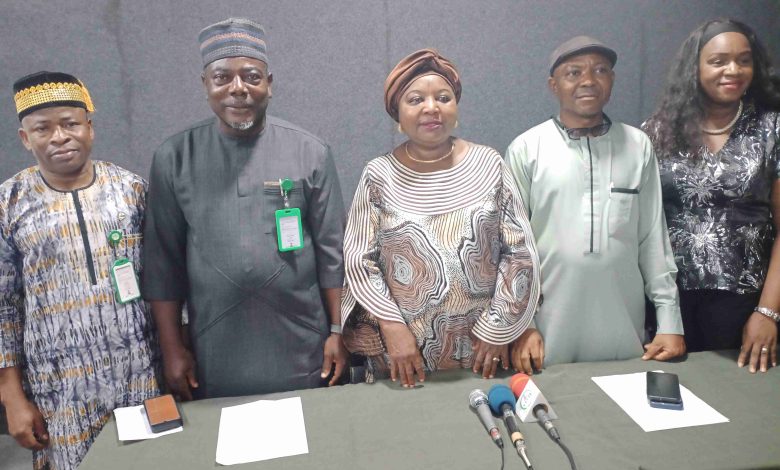SON Urges Lube Manufacturers to Embrace Standardisation for Global Competitiveness
Agency Showcases Accredited Laboratories, Calls on Industries to Utilise Facilities for Quality Assurance


By Azeez Disu
The Standards Organisation of Nigeria (SON) has issued a clarion call to manufacturers of lubricants and other petroleum products, urging them to prioritise adherence to national industrial standards and leverage the organisation’s internationally accredited laboratories for product quality assurance and conformity assessment.
This crucial message was delivered during a One-Day Standards Organisation of Nigeria/Commerce and Industry Correspondents Association of Nigeria (CICAN) Training and Workshop, which took place at the SON Laboratory Complex in Ogba, Lagos. The event also provided participating journalists with an exclusive tour of SON’s advanced laboratories.
Speaking on behalf of the Director General (DG) of SON, Dr. Ifeanyi Okeke, the agency’s Director of Corporate Affairs, Mrs. Talatu Ethan, emphasised the strategic importance of standardisation to Nigeria’s economic growth. “Our mandate is to drive industrialisation,” Mrs. Ethan affirmed, stating that SON’s core function is “to do everything necessary to ensure compliance with the minimum requirement of Nigeria Industrial Standard by all our stakeholders.” She stressed that standardisation has become “the currency of global relevance,” functioning not merely as regulatory tools but as “instruments of growth, innovation, consumer safety and trade.”
Mrs. Ethan further highlighted that adherence to standards ensures goods and services meet essential safety and quality benchmarks, thereby protecting Nigerian consumers. Crucially, she noted that “Compliance with standards opens regional and international markets for Nigerian products and services, especially under the African continental framework,” enabling Nigeria to enhance its competitive position in the global market.
She stressed the vital role of the media as “partners in progress” and “key translators” between the technical language of standardisation and the everyday understanding of our citizens. She implored CICAN members to actively promote the “Nigerian First Policy” by becoming “advocates of quality and champions of Nigeria Industrial Standard NIS,” ultimately stating, “Your Pen is powerful” to “catalyse change, amplify standards and deepen national conversation” around product quality.
Highlighting SON’s capabilities in ensuring product quality, Bathinyi Ahmadu, Head of the Lube Laboratory at SON, provided an in-depth overview of the specialised testing services available. He explained that the laboratory has significantly expanded its scope to cover a wide array of petroleum products, including conventional engine lubricating oils, hydraulic oils, transmission fluids, lubricating gear oils, and brake fluids. The laboratory also tests “white petroleum products” such as Premium Motor Spirit (PMS), Automotive Gas Oil (AGO), Household Kerosene (DPK), aviation fuel, and E10 (ethanol-blended petrol).
Ahmadu detailed the comprehensive set of parameters tested, which include sulphur content, specific gravity, kinematic viscosity, flash point, fire point, pour point, shear stability, and colour. He particularly emphasised the viscosity index for lubricants, explaining that it is “the parameter that tells you how long your lubricant can actually last,” influencing whether a product can perform for one month versus three months. For petrol, he noted the testing of parameters like Research Octane Number (RON), highlighting that Nigeria’s premium grade PMS requires a minimum RON of 91.
The Head of Lube Laboratory assured attendees of the lab’s commitment to precision and accuracy. “Our major concern is to ensure that we produce a very valid, precise and accurate result,” Ahmadu stated, adding that the laboratory rigorously follows validated ASTM test methods and benchmarks its findings against both national industrial standards and international ISO standards. He proudly mentioned that many of the lab’s parameters are “currently under accreditation in line with the requirement of ISO 17025,” which guarantees the global acceptance of their test results. Ahmadu also showcased advanced equipment, including an automated viscometer, a shear stability tester, an X-ray fluorescence analyser for sulphur content, and a newly acquired XRF elemental analyser capable of detecting elements like phosphorus and lead.
In a direct appeal to the industry, Ahmadu urged, “We want to use this medium to encourage manufacturers or stakeholders to make use of these facilities for the purpose of conformity assessment.” This call aims to foster a culture of quality and ensure Nigerian products meet required benchmarks.
Providing a media perspective, Mr. Charles Okonji, Chairman of the Commerce and Industry Correspondents Association of Nigeria (CICAN), commended SON for its long-standing collaboration with the media. Okonji acknowledged the challenging economic landscape facing Nigeria’s “real sector,” including inflation, unemployment, and insecurity. He expressed gratitude for the workshop, which he believes will enable journalists to disseminate “better information for public appreciation.”
Okonji highlighted the public’s trust in SON’s quality mark, stating that “once they see that mark of quality on anything they want to buy, they will say this is original.”


